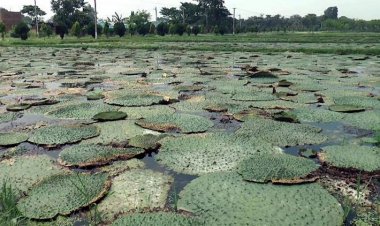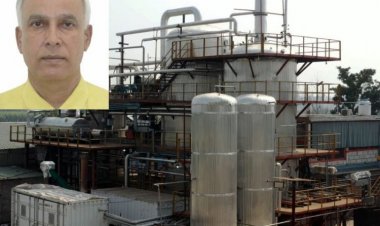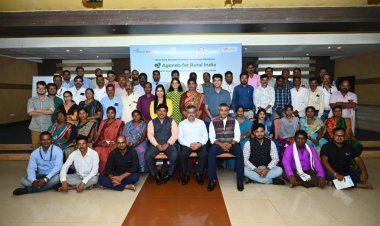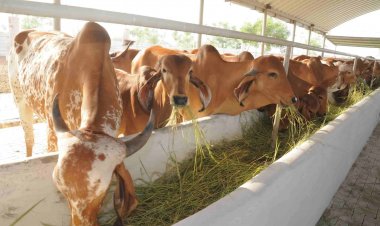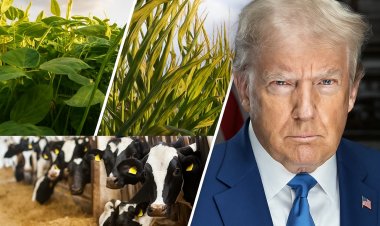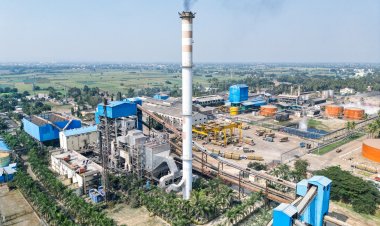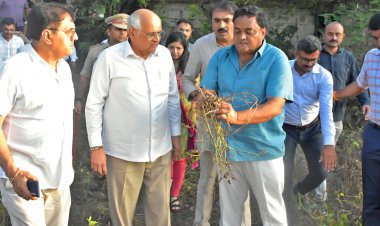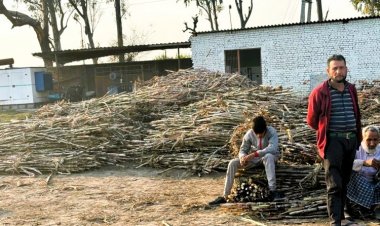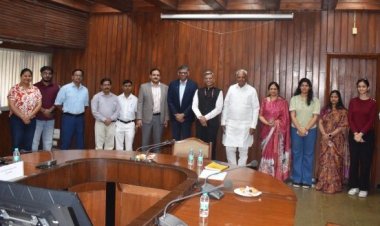Saroj Devi, Rajasthan's successful hybrid millet farmer
43-year-old Saroj Devi is a millet farmer from Rasilpur village in the Roopwas block in Bharatpur district of Rajasthan. In 2022, the 10th grader attended a women farmer training program organised by Pioneer, where she learned about Hybrid millets variety 86M94, and its benefits. This motivated her to plant the hybrid millet seed on 20 acres out of her 40 acres of farm land.
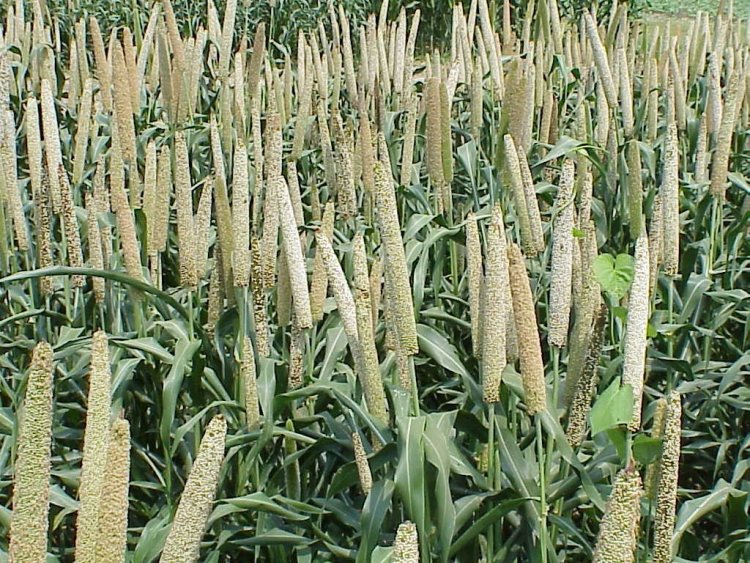
43-year-old Saroj Devi is a millet farmer from Rasilpur village in the Roopwas block in Bharatpur district of Rajasthan. In 2022, the 10th grader attended a women farmer training program organised by Pioneer, where she learned about Hybrid millets variety 86M94, and its benefits. This motivated her to plant the hybrid millet seed on 20 acres out of her 40 acres of farm land. As a result, Saroj Devi was able to achieve an additional yield of 13 maund per acre, resulting in a profit of Rs. 40,000. A maund is approximately 37 kg.
The extra income has given her financial security and she has been able to pay her daughter's coaching fees and son's college fees. Saroj intends to continue planting Pioneer's hybrid bajra in the future to further enhance her productivity and yield. Married at the age of 18, she started supporting her husband in farming.
Sharing her success story with the Rural Voice she said that attending the women's farmer training programme organised by Corteva Agriscience proved to be a game-changer for her. "During the programme, I learned about Pioneer's hybrid millet variety 86M94 and its benefits, which motivated me to try it out on my land. Seeing the potential of hybrid millet, I decided to plant the seeds on 20 acres of my 40-acre land. The results were astounding. I was able to achieve an additional yield of 13 maund per acre, resulting in a profit of Rs. 40,000. This extra income has given me and my family financial security, and I was able to pay for my daughter's coaching fees and my son's college fees.
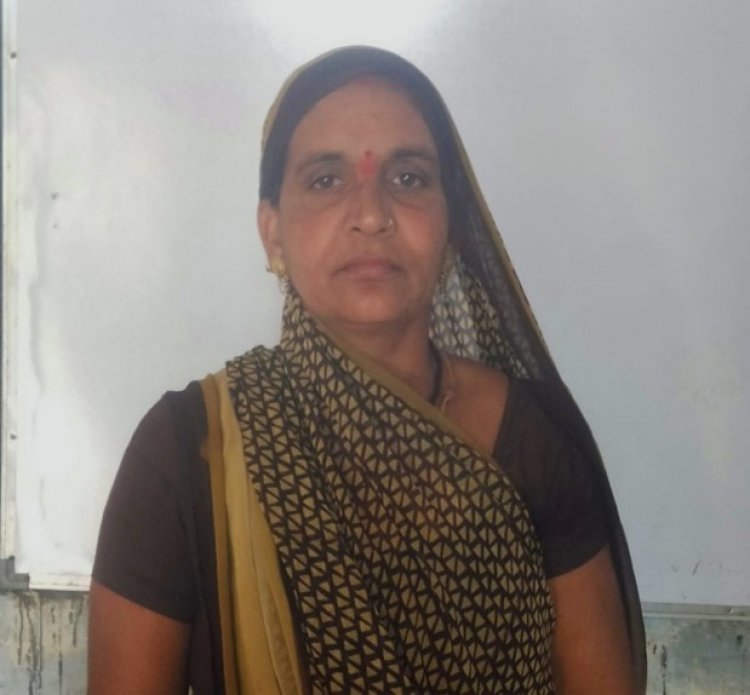
"I am grateful for the training programme that has opened up new opportunities for me and my fellow women farmers," she said. Recalling certain challenges faced by her when transitioning to planting hybrid millets, she said, "Earlier, when we used to grow traditional millet varieties, one of the main challenges we faced was adapting to new cultivation techniques and requirements of hybrid millets. From traditional millet we used to get less yield which means less money. But since we went to the Pioneer's meeting and saw that 86M94 millets giving more yield than others, we decided to plant 86M94 millets in 20 acres, and we got more yield than before."
By being proactive, seeking guidance, and applying the knowledge gained from the training program, I was able to overcome the challenges associated with transitioning to planting hybrid millets. It was a rewarding experience to see my efforts pay off with increased productivity and income, Saroj Devi said.
She explained that hybrid millets variety was resilient to drought and other environmental stress factors, resulting in more productive crops. In terms of income, the hybrid millets variety gave a better return on investment. "I was able to sell the millets at a higher price in the market due to their quality and yield. Moreover, I didn't have to spend as much on pesticides and fertilisers as the hybrid variety had better resistance to pests and diseases. Overall, I am very satisfied with my decision to plant Pioneer's 86M94 hybrid millets variety. It not only increased my productivity and income but also made farming easier and more efficient. I would highly recommend this variety to other farmers in my community," she said.
Sharing some of the benefits of planting hybrid millets compared to traditional millet varieties, she said hybrid millets have shown to be more resistant to pests and diseases, resulting in a healthier and more robust crop. They also require less water and fertiliser, which can lead to significant cost savings. Another benefit of planting hybrid millets is that they have a higher yield potential than traditional millet crops.
"This leads us to produce more millet on the same area, leading to higher profits. The hybrid millet variety that I planted, Pioneer's 86M94, is known for its high yield potential and exceptional quality. Overall, I believe that planting hybrid millets is a smart choice for farmers looking to increase their yield and profits while also reducing their environmental impact. With the right knowledge and resources, hybrid millet farming can be a sustainable and profitable option for farmers," she said.
"Hybrid millet farming has been highly profitable for me, and I would definitely advise it to anyone looking to increase their yield and earn a decent income. The quality of the hybrid millet variety I planted was exceptional, and it helped me achieve a better yield and quality than traditional millet crops. This has given me financial security and stability, and I am confident that hybrid millet farming can do the same for other farmers as well," she added.
Asked where she sold her produce, she said, "I sell my millet harvest directly to traders in the local market. After the harvest, I transport the millets to the market where various traders are present. This allows me to connect with potential buyers and negotiate the sale of my produce. Selling directly to traders in the market provides convenience and ensures a fair transaction for both parties involved."
Buoyed by the success, Saroj Devi said she will keep planting high-yielding millet varieties and planned to gradually expand the area under cultivation of hybrid millet. "With the proven profitability and positive impact it has had on my income, I am confident that scaling up the production of hybrid millet will bring further financial stability and prosperity to my family," she added.



 Join the RuralVoice whatsapp group
Join the RuralVoice whatsapp group

















